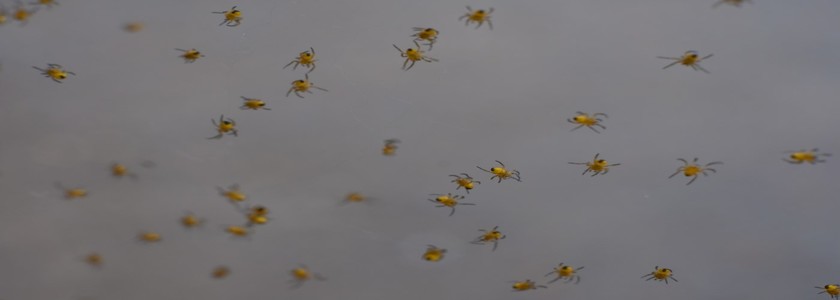

Hurricanes have quite an effect on wildlife. Most animals will flee to a safer place or take cover. Even marine animals will swim miles away from the storm or swim to the deeper parts of the ocean to avoid the destruction. Researchers at McMaster University in Ontario, Canada rushed in after several tropical cyclones to study the behavior of spiders. They wanted to know if tropical storms have an evolutionary impact on population in storm-prone regions.
Jonathan Pruitt, an evolutionary biologist and Canada 150 Chair in McMaster's Department of Psychology, Neuroscience, and Behavior, and his team examined female colonies of spiders known as "Anelosimus studiosus." They live along the Gulf and the Atlantic Coast of the United States, as well as Mexico. This area is prone to tropical cyclones during hurricane season, which is from May to November of each year. Pruitt and his team had to face many challenges when dealing with this study. This included waiting for a hurricane to form that would affect the study area and determined its path to landfall. Once the path was determined, they sampled populations before landfall, then returned to the sites after 2 days.
Their case study included subtropical storm Alberto, Hurricane Florence, and Hurricane Michael, which all made landfall in the study area in 2018. They sampled 240 colonies along the coastal regions, mentioned above, and compared them to control sites. Already, they noticed that particular spider traits prevail over others in extreme weather. The study was divided into the following two personality traits: docile and aggressive. What the study concluded was that, after tropical cyclone events, colonies with more aggressive spiders were better at searching widely for resources and obtaining food for the colony. This led to a higher production of eggs, which then led to more baby spiders that survived into early winter. This trend was consistent across the multiple storms that varied in size, intensity, and duration.
"As sea levels rise, the number of tropical cyclones will only increase," says Pruitt. He then went on to mention that this will add more ecological and evolutionary stress to animals and insects in hurricane prone areas.